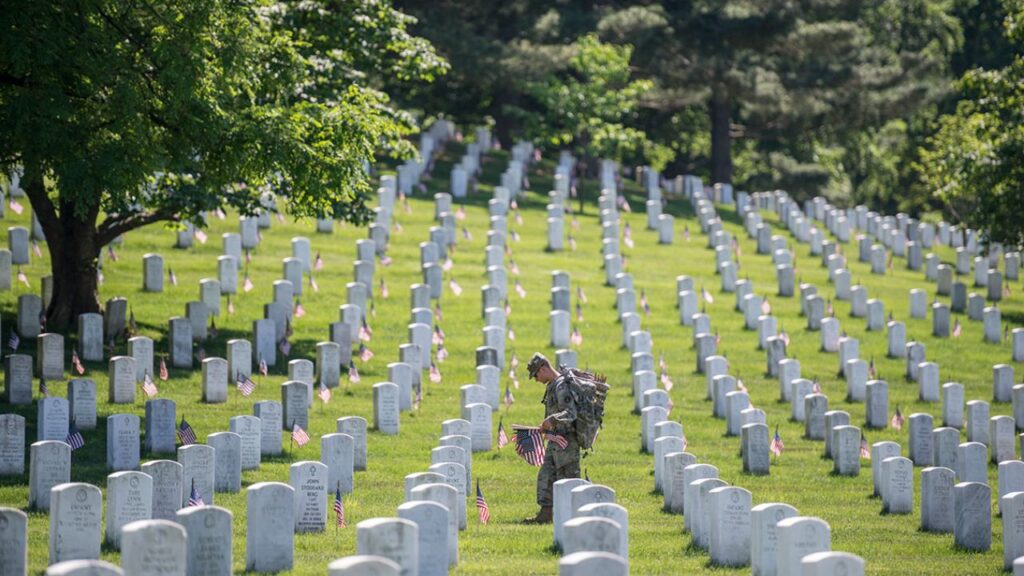VA Burial Benefits: The VA may offer burial and memorial benefits to veterans discharged from active duty under conditions other than dishonorable, as well as their spouses and dependent children.
Table of Contents
The Veteran is entitled to benefits regardless of whether he or she passes away before a spouse or dependent child.
Every eligible Veteran deserves a dignified burial and memorialization to commemorate their service. https://t.co/SkNQKYwVpS
— Veterans Affairs (@DeptVetAffairs) December 6, 2023
Enlisted personnel who are on active duty after Sept. 7, 1980, and officers who are on active duty after Oct. 16, 1981, must serve a minimum of 24 consecutive months or the full period of active duty to qualify, with certain exceptions.
Eligibility is not granted solely through active duty for instruction. Nevertheless, reservists and National Guard members, as well as their families, are eligible if they were entitled to retired pay at the time of their death or would have been upon attaining the appropriate age.
What does the VA cover for burial benefits?
A copy of the Veteran’s discharge document showing the period(s) of active duty and character of discharge is usually enough to verify burial eligibility.
You might need a copy of the deceased’s death certificate and proof of their relationship.
Veterans can appeal VA decisions about burials in national cemeteries and other memorial benefits.
Also Read: Applying for Your Social Security Card Online: Step-by-Step Guide and Website Details
A burial in a national cemetery of the VA
At no cost, eligible Veterans, their spouses, and dependents may be interred in a VA national cemetery.
This encompasses the gravesite, grave liner, opening and closing of the grave, a headstone or marker, and perpetual maintenance.
Most veterans pass away outside of VA facilities, but currently, certain burial & funeral allowances are only given to survivors of veterans who pass away at a VA facility. The Dole Act would ensure that those who choose a different end-of-life care setting – such as VA hospice…
— House Committee on Veterans' Affairs (@HouseVetAffairs) May 24, 2024
Additionally, veterans are granted military funerary honors and a burial flag. Presidential Memorial Certificates may be requested by family members.
The National Cemetery Scheduling Office is responsible for coordinating interment arrangements. Gravesites cannot be reserved, except under previous reservation initiatives, and VA generally does not conduct burials on weekends.
Privately owned Cemeteries
Please submit VA Form 40-1330 and a copy of the Veteran’s discharge document to the Memorial Programs Service in order to obtain a headstone or marker in a private cemetery.
Before placing an order, verify that the cemetery will accept the government-provided headstone or marker.
Also Read: Texas SNAP Payment Schedule: When is the next Texas SNAP payment schedule?
Burial flags
The VA provides a U.S. burial flag in memory of:
- Veterans who served during wartime or after January 31, 1955.
- Veterans who served in the Reserves or National Guard are entitled to retired pay.
- Members or former members of the Selected Reserve who meet certain conditions.
Burden reimbursement
If the Veteran’s death was service-related, VA will reimburse up to $2,000 for burial expenses. Transportation expenses to the nearest national cemetery with accessible gravesites are occasionally reimbursed by the VA.
Honors for military funerals
Military funeral honors are available upon request from the Department of Defense, which includes the folding and presentation of the U.S. flag and the playing of “Taps.”
Honors should be coordinated by funeral directors, with VA assistance available for burials at national cemeteries.
Also Read: FAFSA Deadline 2024: When is the last day to make changes to your application?



